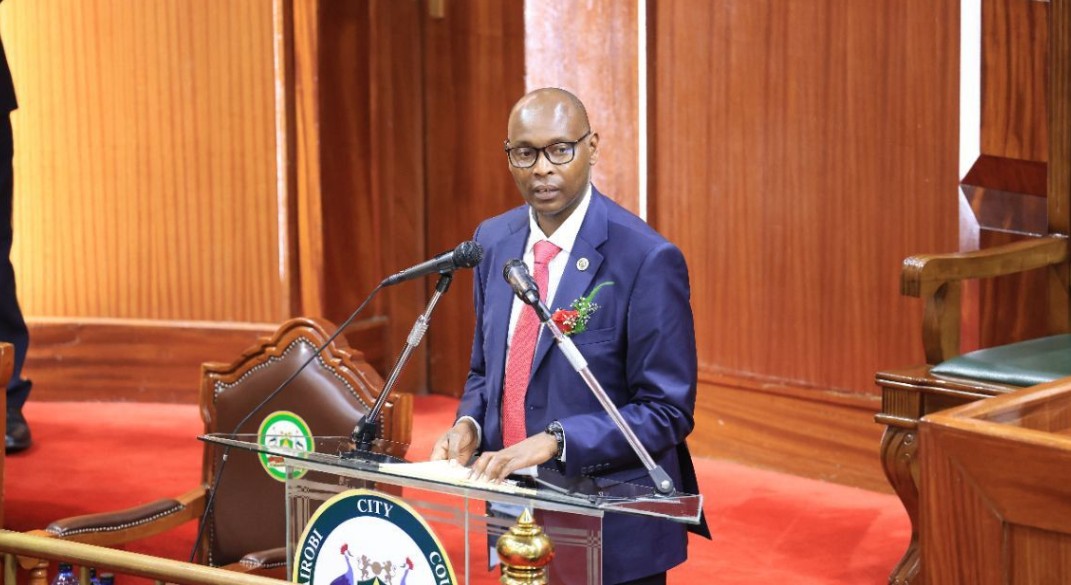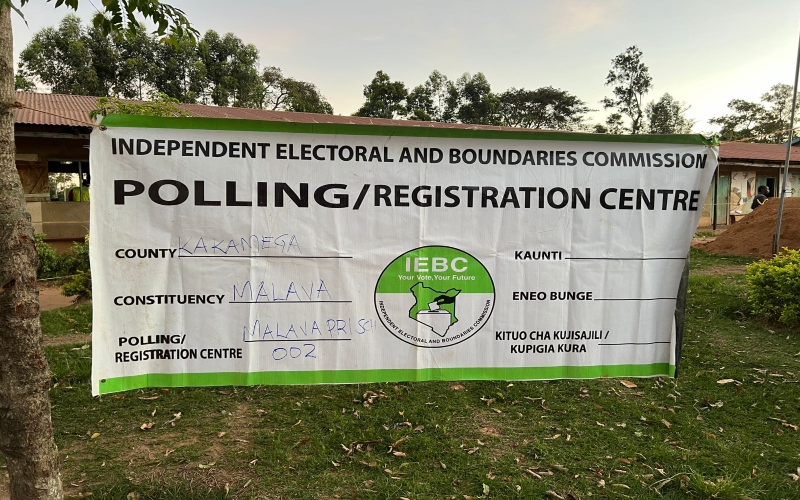Nairobi hits record Sh13.7 billion revenue in 2024/25, surpassing last year by Sh1 billion

The county credits the record-breaking performance to enhanced collection efforts, the adoption of digital systems, and stricter enforcement targeting defaulters in land rates, house rent, and business permits.
Nairobi City County has recorded Sh13.7 billion in revenue for the 2024/2025 financial year, marking a nearly Sh1 billion increase from the previous year and the highest collection since the start of devolution.
This is the highest figure ever recorded since the advent of devolution, signalling the success of ongoing reforms and tightened enforcement across key revenue streams.
More To Read
- Governor Sakaja unveils six-borough structure to enhance service delivery
- Why City Hall moved hospital accounts to Sidian Bank- Sakaja
- City residents say Nairobi's illegal billboard cleanup favours some areas over others
- Nairobi County proposes new rules to strengthen school feeding programme oversight
- Governor Sakaja moves Geoffrey Mosiria from Environment to Customer Service docket
- Governor Sakaja says Sh180 billion needed to clean Nairobi's main rivers
The county has attributed the record performance to intensified collection efforts, digital systems and aggressive enforcement targeting defaulters in land rates, house rent and business permits.
Governor Johnson Sakaja, while acknowledging the achievement, praised the collective effort despite recent political unrest in the city.
“Sh13.7 billion is a record since devolution. It’s up from last year’s Sh12.8 billion, a strong Sh1 billion increase. With this momentum, we can aim even higher. It’s possible when we all play our part as government and as citizens,” Sakaja said.
County Receiver of Revenue Tiras Njoroge attributed the surge in revenue to deliberate strategies such as stricter enforcement and a renewed emphasis on compliance.
“We cannot have a city of millions sustained by just a few contributors. Everyone must take responsibility. We’re continuing enforcement on land rates, unified business permits, Nairobi Pay, house rents, and more,” Njoroge said.
Housing
In the housing sector, the county collected Sh800 million in house rent, marking the highest figure in more than a decade.
Housing Chief Officer Lydia Mathia said this represented a sharp jump from Sh500 million collected in 2023/2024 and nearly double the Sh439 million realised in 2021/2022.
She credited the growth to enhanced enforcement, digitised rent tracking systems and intensified recovery campaigns. Notably, the department collected Sh200 million in May 2025 alone, the highest monthly figure on record.
The revenue milestone was announced just days after Nairobi Finance and Economic Planning CEC Charles Kerich tabled a Sh44.6 billion budget for the 2025/2026 financial year.
Constitutional threshold
Out of the total, Sh31.2 billion has been allocated to recurrent expenditure, while Sh13.4 billion will fund development programmes, meeting the 30 per cent constitutional threshold set by the Public Finance Management Act, 2012.
“In the health sector, Sh849 million has been set aside for the construction, rehabilitation, and equipping of health centres, including the procurement of essential supplements and vitamins,” Kerich said.
Another Sh400 million will go toward supplying county hospitals with non-pharmaceutical essentials to ensure smooth operations and availability of basic medical items.
Kerich added that infrastructure development in the health sector remains a key priority, with planned upgrades to Pumwani Maternity Hospital and Mama Lucy Kibaki Hospital. These include the installation of modern diagnostic tools and improvements to the county’s health data systems.
School feeding programme
The county’s school feeding programme, a flagship initiative by Governor Sakaja, will receive Sh700 million—slightly less than last year’s Sh800 million but sufficient to sustain current operations.
Over 10 modern kitchens were built last year to support the programme, which has boosted school attendance and child nutrition.
The county has allocated Sh857 million for bursaries, with each of Nairobi’s 85 wards receiving Sh7 million and the remainder supporting continuing learners through the Executive Scholarship Programme.
Grassroots development
To strengthen grassroots development, Sh2.15 billion has been set aside for ward development programmes.
Kerich told the county assembly that 145 projects were completed in the previous year, and that the new allocation will accelerate ongoing works in all wards.
The roads sector has been allocated Sh2.8 billion for road construction and rehabilitation across the county. An additional Sh1 billion will go toward the development and upgrading of stadiums and sports complexes.
Kerich assured residents that the county would not impose new taxes despite ongoing economic challenges.
“We will not increase taxes during these difficult times. Instead, we’re focusing on widening the tax base and tapping into previously uncollected revenue sources,” he said.
Top Stories Today
















































